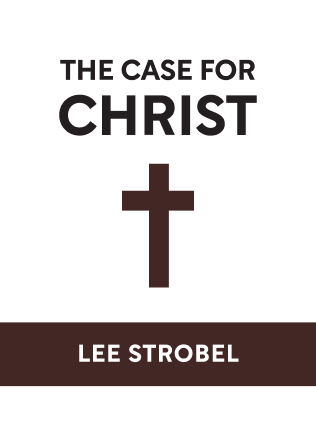

This article is an excerpt from the Shortform summary of "The Case for Christ" by Lee Strobel. Shortform has the world's best summaries of books you should be reading.
Like this article? Sign up for a free trial here .
Who is King Herod the Great, and what was his role in the Bible? What does King Herod the Great have to do with Jesus?
King Herod the Great was a powerful and influential King during Jesus’s lifetime. He was famous for his slaughter of new babies that he perceived as a threat to his power based on prophecies.
Read more about King Herod the Great and why King Herod in the Bible may help prove that Jesus existed.
King Herod the Great in the Bible
Throughout the Bible, King Herod the Great is mentioned. Some point to Herod’s actions as unrealistic or fabricated.
Riddle 1: The Judean Census
According to the narratives of Jesus’s birth, a census forced the citizens of Judea, including Joseph and Mary, to return to Joseph’s birthplace of Bethlehem, where Jesus was eventually born. Critics typically focus on two aspects of this story:
- Whether any such census did take or could have taken place; and
- Whether its alleged issuer, a Roman ruler of Syria named Quirinius, was in fact ruler at the time of the census.
In terms of #1, censuses like this—where inhabitants were required to return to the places of their birth—did in fact occur in the ancient world. An Egyptian prefect named Gaius Vibius Maximus, for example, ordered a similar census in the second century AD, like Herod he King.
In terms of #2, the debate concerns the historical timeline: According to the Bible, Quirinius ruled Syria during the time of King Herod, but most secular sources show Quirinius ruling Syria in 6 AD, ten years after Herod in the Bible’s death. However, recent archaeological findings suggest there were two Quiriniuses—one who ruled during the reign of Herod and one who reigned after. (Other archaeologists have proposed an alternative theory: that there was only one Quirinius, but he ruled at two different times.)
Riddle 2: The (Non)existence of Nazareth
Unbeknownst to most Christians, there is spirited scholarly debate about whether Nazareth existed when Jesus was a child; there is no mention of the town in the Old Testament, the Talmud, the histories of Josephus—even Paul’s epistles! (Skeptics of Christianity argue the town was created and named later.)
Nazareth was likely overlooked by these writers because of its tininess—according to one scholar, its population was probably a maximum of 480. And there is in fact archaeological evidence the village existed in the first century: ancient documents, as well as tombs discovered in the area, indicate the village existed at least as early 70 AD and likely far earlier. So why does this matter for Herod the King?
Riddle 3: The Massacre of the Innocents
In Matthew 2:16, King Herod the Great, fearing that a recently born baby will grow to usurp his throne, orders his soldiers to Bethlehem to slaughter all male children under two. Joseph and Mary, of course, having been warned by an angel, escape with Jesus to Egypt.
It has long been noted among atheists and skeptics that there is no evidence for this event beyond Matthew’s account. Certainly a crime of this magnitude would have been noticed by contemporary observers?
The answer is, Not necessarily. First, in a town the size of Bethlehem (500–600 people), the actual number of babies singled out by King Herod the Great’s soldiers was likely small. Second, though it’s hard for us to imagine, violence like this was not uncommon in the ancient world. He was known as a particularly brutal king, and his executing a small number of babies in a humble village would likely not have risen to the level of breaking news. Thus the fact that Matthew is the only one to mention the event isn’t surprising—and certainly doesn’t undercut its factuality. King Herod in the Bible may have had other incidents like this.

———End of Preview———
Like what you just read? Read the rest of the world's best summary of Lee Strobel's "The Case for Christ" at Shortform .
Here's what you'll find in our full The Case for Christ summary :
- How an atheist lawyer-journalist researched Christ and began believing
- The key arguments against the existence of Christ, and why they don't hold up
- How to make up your own mind about whether Christ existed






